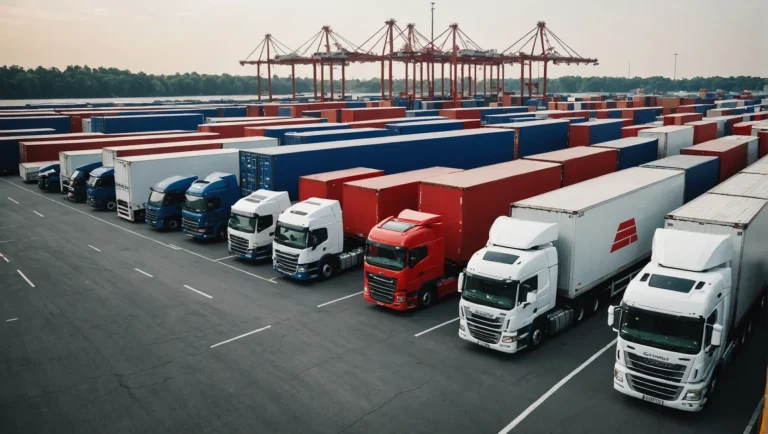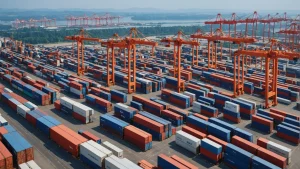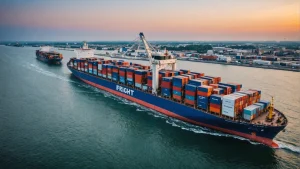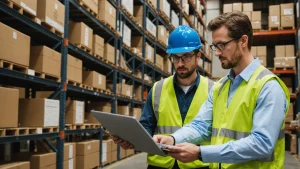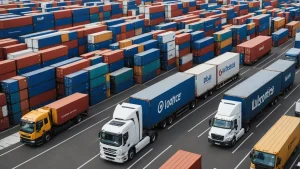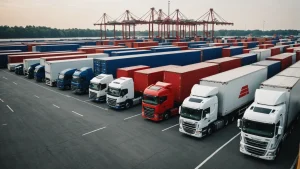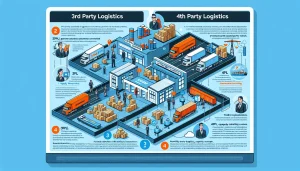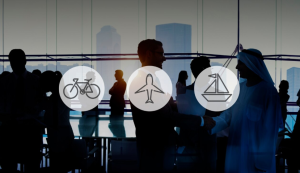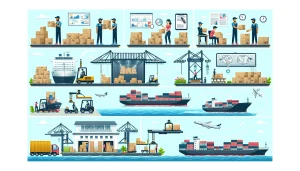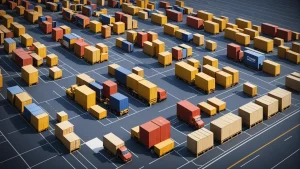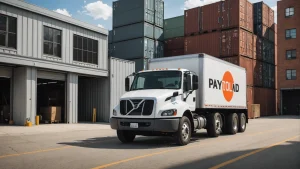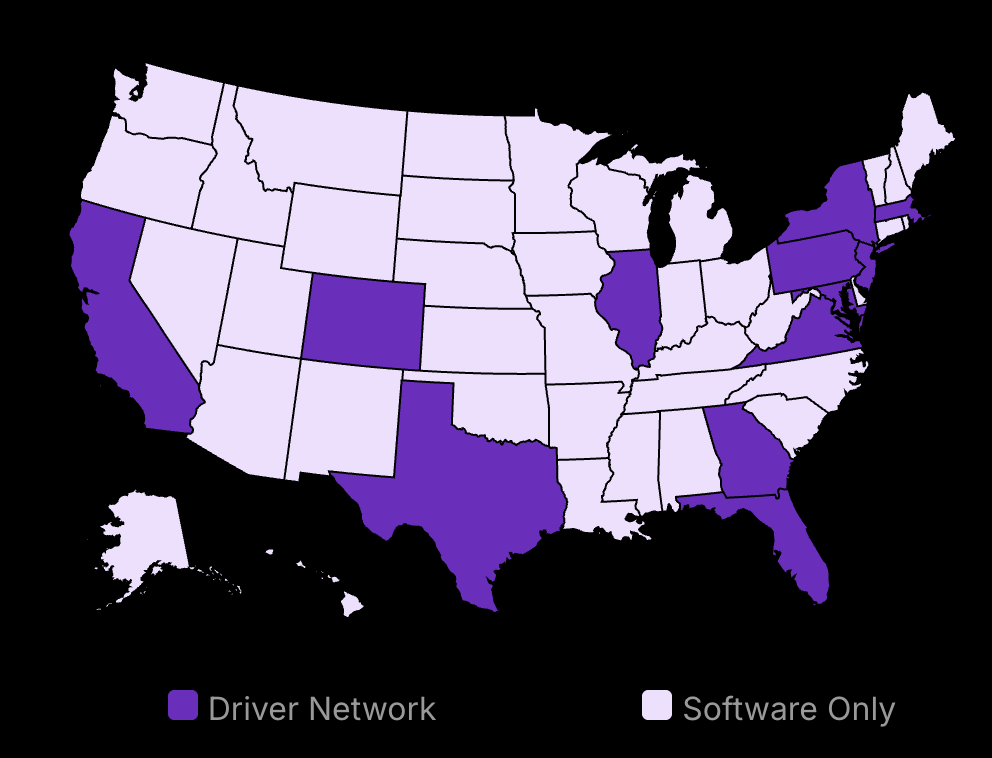In the fast-paced world of supply chain management, partnering with the right third-party logistics and fulfillment company can make or break your business. Curious about optimizing your supply chain with third-party logistics? Discover the benefits and drawbacks of incorporating 3pl solutions into your business strategy.
With so many options to choose from, how do you know which 3PL will best fit your needs?
We’ve done the research for you.
In this comprehensive guide, we’ll compare the top 10 third-party logistics companies of 2024, diving deep into their strengths, specialties, and what sets them apart from the competition. Discover how a coordinator in logistics plays a crucial role in choosing the best third-party logistics company for your needs in this detailed guide.
Whether you’re looking for global reach, industry-specific expertise, or cutting-edge technology, you’ll find the perfect partner here.
Let’s get started.

Save 80% of delivery management time
We handle everything:
- Dedicated operations manager
- Real-time tracking dashboard
- Automated customer notifications
- Urgent issue resolution
Top 10 Third-Party Logistics (3PL) Companies in 2024: An In-Depth Comparison
A third-party logistics (3PL) company is an external provider that manages and executes logistics activities on behalf of its clients. These companies offer various services, from transportation and warehousing to value-added services such as packaging, labeling, and inventory management. By outsourcing logistics operations to a third-party logistics company or a 3PL, businesses can focus on their core competencies while leaving the complex world of supply chain management to the experts. Explore how supplementary services can elevate your supply chain efficiency and provide competitive advantages in today’s demanding market.
3PLs have become increasingly important in today’s globalized economy, where supply chains span multiple countries and continents. They help businesses navigate the challenges of international trade, including customs regulations, tariffs, and cultural differences. Additionally, 3PLs often have extensive networks of carriers, warehouses, and other logistics partners, allowing them to provide comprehensive solutions tailored to each client’s unique needs. For those looking to optimize their supply chain even further, understanding the contrast between third-party logistics (3PL) and fourth-party logistics (4PL) can offer deeper insight into potential improvements and savings.
Types of 3PL Providers
Transportation-based 3PLs
Transportation-based 3PLs focus primarily on moving goods from one point to another. They offer a range of services, including freight brokerage, carrier selection, route optimization, and shipment tracking. These providers often have extensive networks of carriers across various modes of transportation, such as truckload, less-than-truckload (LTL), intermodal, and air freight. Interested in how goods are moved globally? Learn more about the logistics of freight forwarding and how it plays a crucial role in the efficiency of transportation-based 3PL services.
By outsourcing transportation management to a 3PL, businesses can benefit from their expertise in selecting the most efficient and cost-effective shipping methods. Transportation-based 3PLs also offer valuable insights into market trends, capacity constraints, and rate fluctuations, helping companies make informed decisions about their transportation strategy.
Warehouse-based 3PLs
Warehouse-based 3PLs specialize in storing and managing inventory on behalf of their clients. They operate facilities designed to handle a wide range of products, from raw materials and components to finished goods. These providers offer services such as receiving, putaway, picking, packing, and shipping, as well as value-added services like kitting, assembly, and product customization.
Outsourcing warehousing to a 3PL allows businesses to reduce the fixed costs associated with maintaining their own facilities, equipment, and labor. It also provides flexibility to scale operations as needed, without the need for long-term commitments or capital investments. Additionally, these warehouse space-based 3PLs often have expertise in inventory management, helping companies optimize stock levels, improve accuracy, and reduce carrying costs. Curious about how leveraging third-party logistics can transform your warehousing strategy? Discover how outsourcing to a 3PL provider can streamline your operations.
Integrated 3PLs offering end-to-end solutions
Integrated 3PLs, also known as full-service 3PLs, offer a comprehensive suite of logistics services that span the entire supply chain. These third-party logistics providers combine transportation, warehousing, and value-added services to create end-to-end solutions tailored to each client’s unique needs. By managing all aspects of the supply chain, integrated 3PLs can provide seamless coordination, improved visibility, and greater control over logistics operations. Discover how integrating your supply chain with a 3PL can enhance efficiency and flexibility in your logistics strategy.
One of the key benefits of working with an integrated 3PL is the ability to leverage their technology platforms. These providers often invest in advanced software solutions that integrate transportation management, warehouse management, and order fulfillment into a single, unified system. This enables real-time data sharing, enhanced collaboration, and improved decision-making across the supply chain.
Integrated 3PLs are particularly well-suited for businesses with complex logistics needs, such as those with multiple product lines, distribution and sales channels, or geographic markets. By partnering with a full-service provider, these companies can simplify their supply chain management, reduce costs, and improve overall performance.
Top 10 Third-Party Logistics (3PL) Companies
In our analysis of the top 10 third-party logistics (3PL) companies, we found that while they all offer a comprehensive range of services, there are notable differences in their capabilities and areas of specialization. Let’s take a closer look at how these 3PLs stack up in terms of warehousing and distribution services, transportation management, and supply chain optimization.
According to our assessment, the top 3PL companies are:
UPS: Best for global package delivery and supply chain solutions
DHL: Best for international shipping and courier services
FedEX: Best for express transportation and time-sensitive deliveries
Ryder Solutions Inc.: Best for fleet management and transportation logistics
CJ Logistics: Best for integrated logistics services, particularly in Asia
Kuehne + Nagel Inc.: Best for sea freight and air freight forwarding
GXO Logistics: Best for contract logistics and warehouse automation
DB Schenker Logistics: Best for multimodal transportation and customs services
Nippon Express: Best for comprehensive logistics services, especially in Japan
Metrobi: Best for last-mile delivery optimization and route planning technology
1. UPS
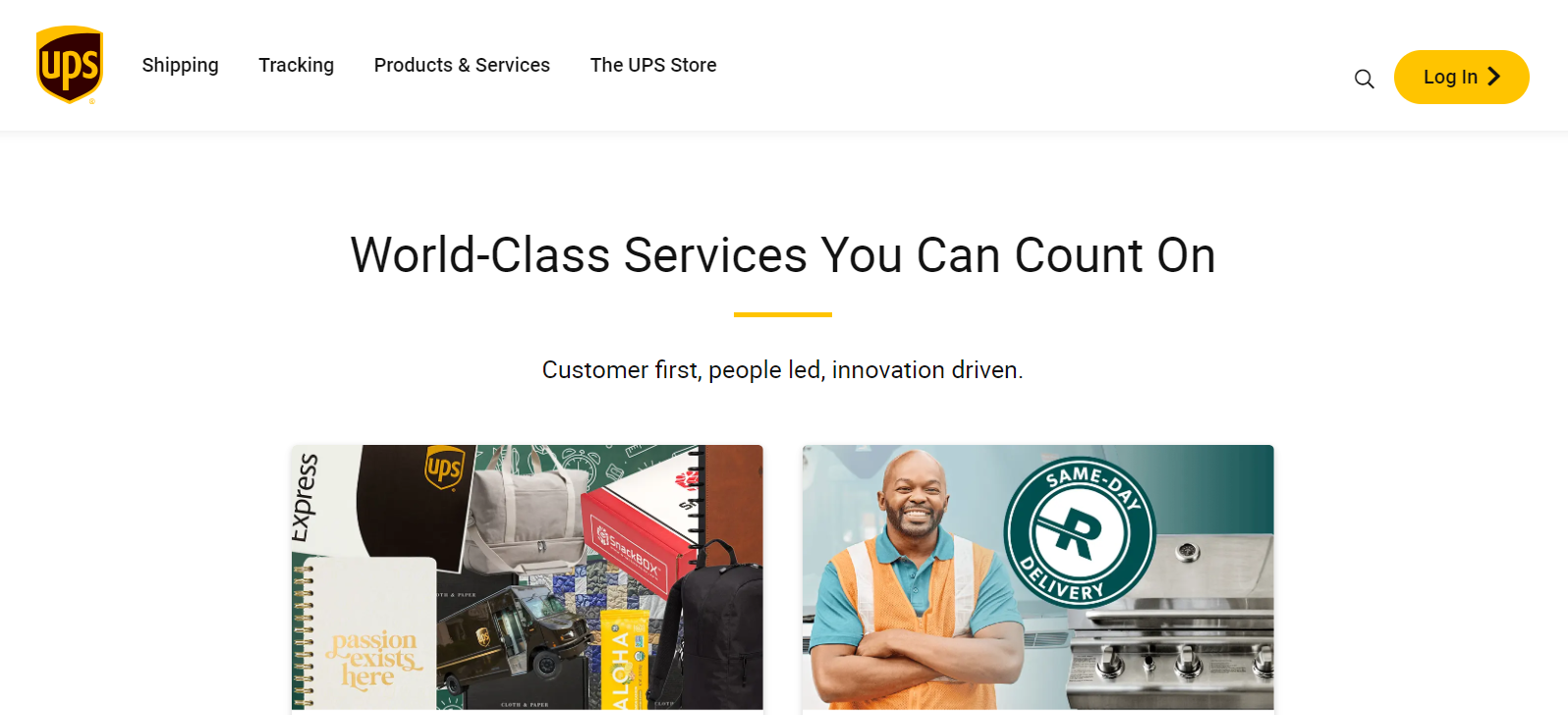
Revenue: $111.5 billion
Headquarters: Atlanta, Georgia, USA
CEO: Carol Tomé
Areas Served: Global, North America, Europe, and Asia
Industries Served: E-commerce, healthcare, retail, automotive, and technology
UPS (United Parcel Service) is a global leader in logistics, offering a comprehensive suite of services that span across 220 countries and territories. With a history dating back to 1907, UPS has established itself as a cornerstone in the logistics industry, handling everything from small package delivery to complex supply chain solutions.
Pros:
Extensive global network with a strong presence in North America
Advanced tracking systems providing real-time visibility
Integrated logistics solutions tailored for various industries
Robust e-commerce services including returns management
Strong commitment to sustainability with alternative fuel fleets
Cons:
Can be more expensive than some regional or specialized competitors
Large size may lead to less flexibility for unique or niche requirements
Peak season surcharges can significantly impact costs
Who should use it: UPS is ideal for businesses of all sizes requiring reliable, global shipping and logistics services. It’s particularly well-suited for companies with high-volume shipping needs, those requiring consistent, time-sensitive deliveries, and businesses looking for a one-stop shop for all their logistics needs.
2. DHL
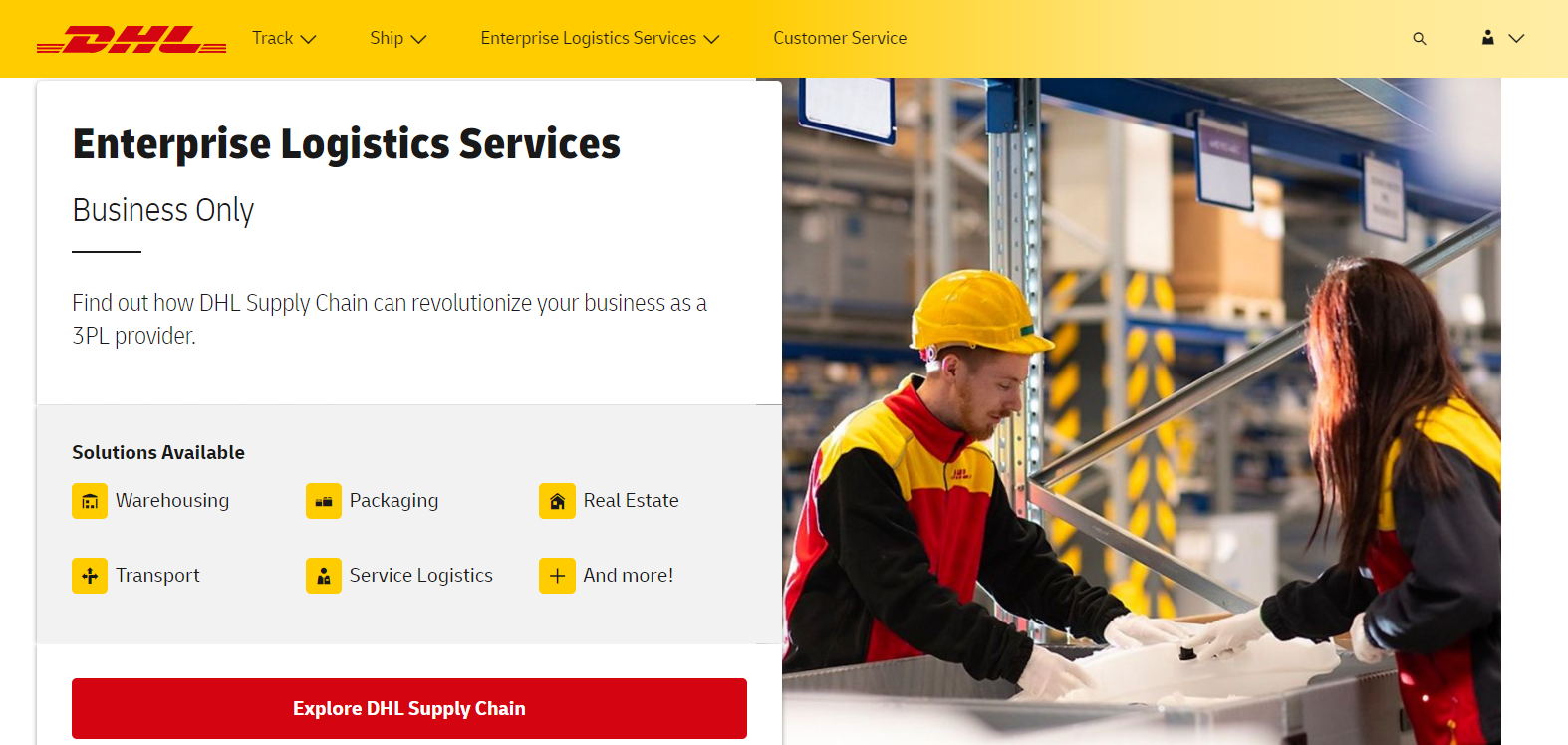
Revenue: €81.1 billion
Headquarters: Bonn, Germany
CEO: Frank Appel
Areas Served: Global, Europe, Asia, and the Americas
Industries Served: E-commerce, consumer goods, healthcare, automotive, and technology
DHL, a part of Deutsche Post DHL Group, is a global logistics company with a strong focus on international shipping and supply chain management. Founded in 1969, DHL has grown to become a leader in the supply chain efficiency industry, known for its yellow and red branding and presence in over 220 countries and territories.
Pros:
Unparalleled global presence, especially strong in Europe and emerging markets
Specialized industry solutions for sectors like healthcare, technology, and automotive
Strong focus on sustainability with the GoGreen environmental protection program
Innovative approach with investments in robotics and AI for logistics
Comprehensive range of services from express delivery to supply chain consulting
Cons:
Can be costly for domestic shipping in some regions, especially in North America
Customer service quality may vary by location due to the vast global network
Complex pricing structure may be challenging for small businesses
Who should use it: DHL is an excellent choice for businesses with significant international shipping needs, especially those in specialized industries like healthcare, technology, or automotive. It’s also suitable for companies prioritizing sustainable logistics solutions and those looking to expand into emerging markets.
3. FedEx
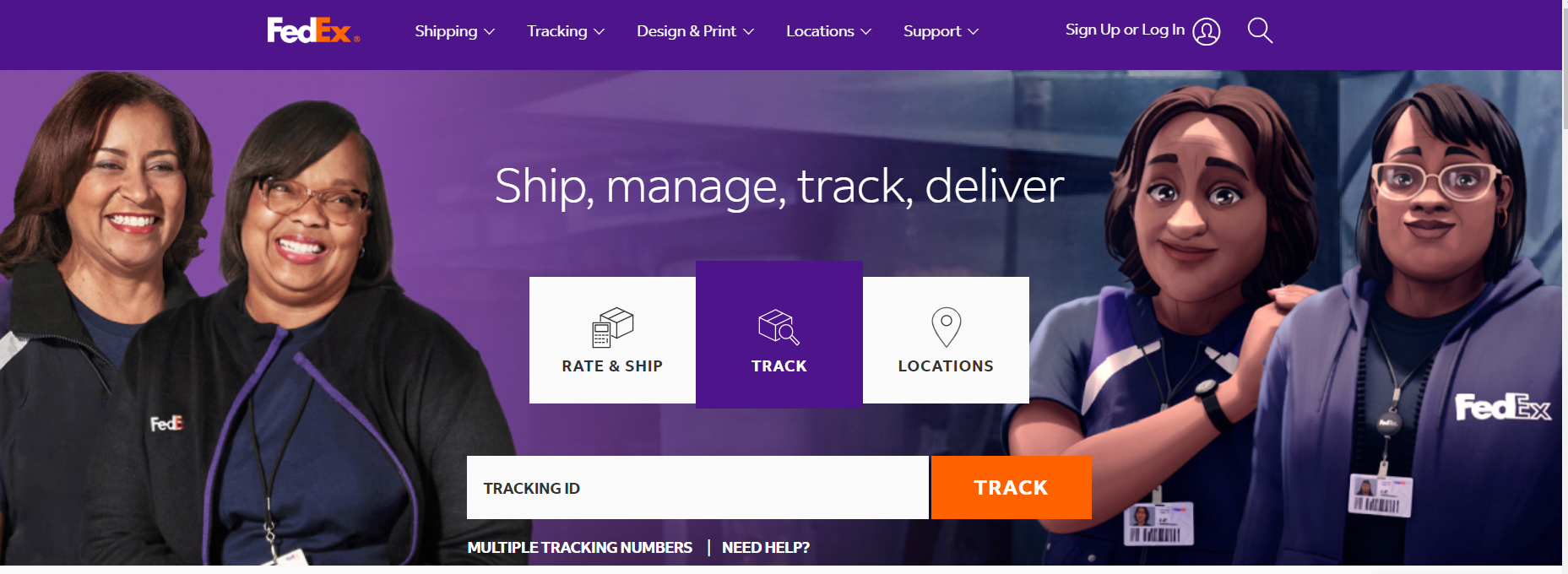
Revenue: $94 billion
Headquarters: Memphis, Tennessee, USA
CEO: Raj Subramaniam
Areas Served: Global, North America, Europe, and Asia
Industries Served: E-commerce, retail, healthcare, technology, and manufacturing
FedEx, short for Federal Express, is renowned for its inbound logistics and overnight shipping service and has expanded to offer a full range of transportation, e-commerce, and business services. Founded in 1971, FedEx has built a reputation for speed and reliability in inbound logistics and the logistics industry.
Pros:
Industry-leading express delivery services with time-definite options
Advanced tracking and analytics tools for enhanced visibility
Strong e-commerce integration with platforms like Shopify and WooCommerce
Extensive air cargo capabilities
Innovative solutions like SenseAware for real-time tracking of sensitive shipments
Cons:
Can be more expensive than some alternatives, especially for non-urgent shipments
Less focus on warehousing compared to some competitors
Ground service network not as extensive as some competitors in certain regions
Who should use it: FedEx is ideal for businesses that prioritize speed and reliability in their shipments, particularly for time-sensitive deliveries. It’s also well-suited for e-commerce businesses requiring less shipping costs and seamless integration with online platforms, and companies in industries like healthcare and technology that need specialized handling for sensitive items.
4. Ryder Solutions Inc.
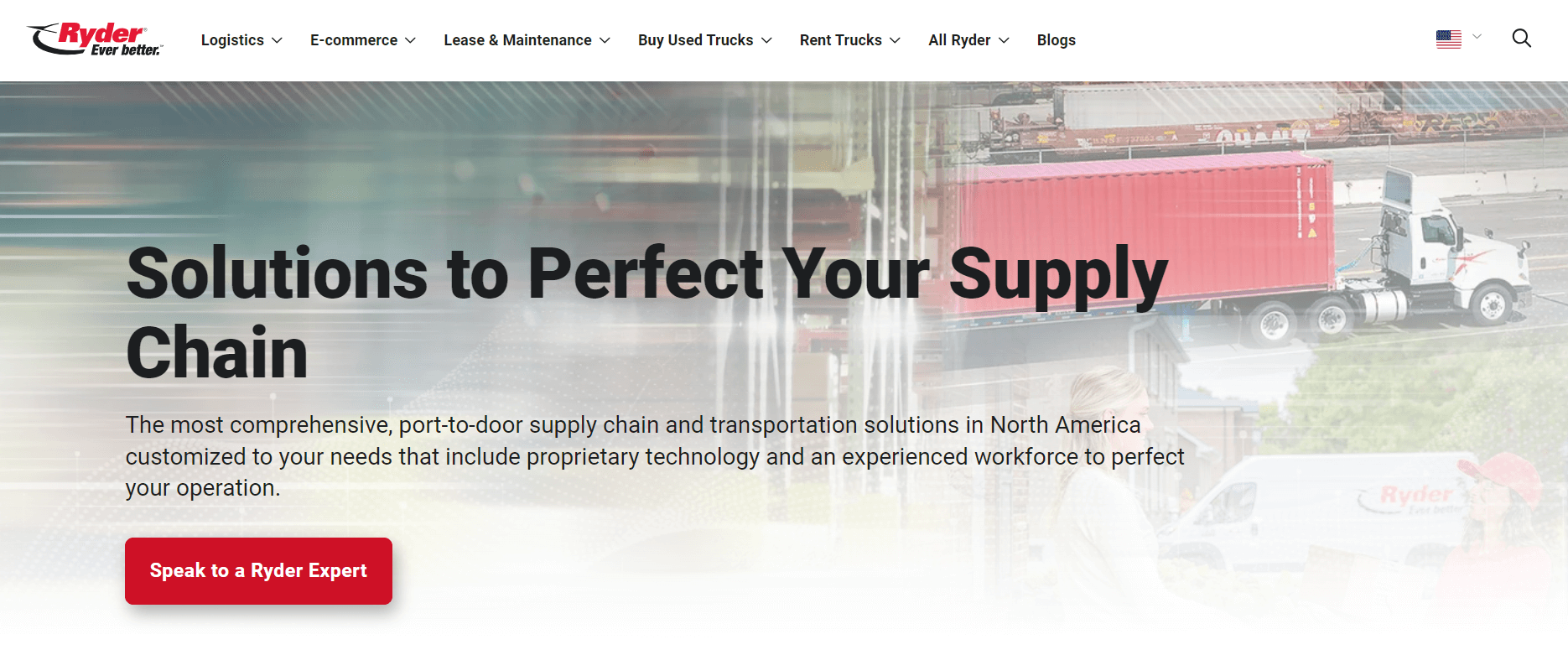
Revenue: Approximately $9.2 billion
Headquarters: Miami, Florida, USA
CEO: Robert Sanchez
Areas Served: North America, Latin America, and Europe
Industries Served: Automotive, consumer goods, industrial, and retail
Ryder Solutions Inc. is an American-based provider of transportation, vendor management, and supply chain solutions. Founded in 1933, Ryder has evolved from a truck leasing company to a comprehensive logistics provider, specializing in fleet management providing transportation services, dedicated transportation, and supply chain solutions.
Pros:
Strong expertise in fleet management and leasing
Flexible transportation solutions including dedicated fleets
Focus on innovation with RyderShare™ visibility and collaboration platform
Comprehensive maintenance services for vehicle fleets
Specialized solutions for automotive, consumer packaged goods, and other industries
Cons:
Less global reach compared to some larger competitors
May have limited options for small businesses with minimal logistics needs
Primary focus on the North American market
Who should use it: Ryder is best for medium to large businesses looking for comprehensive fleet management and transportation solutions in North America. It’s particularly suitable for companies in manufacturing, retail, and consumer packaged goods industries, as well as businesses looking to outsource their entire transportation operation.
5. CJ Logistics
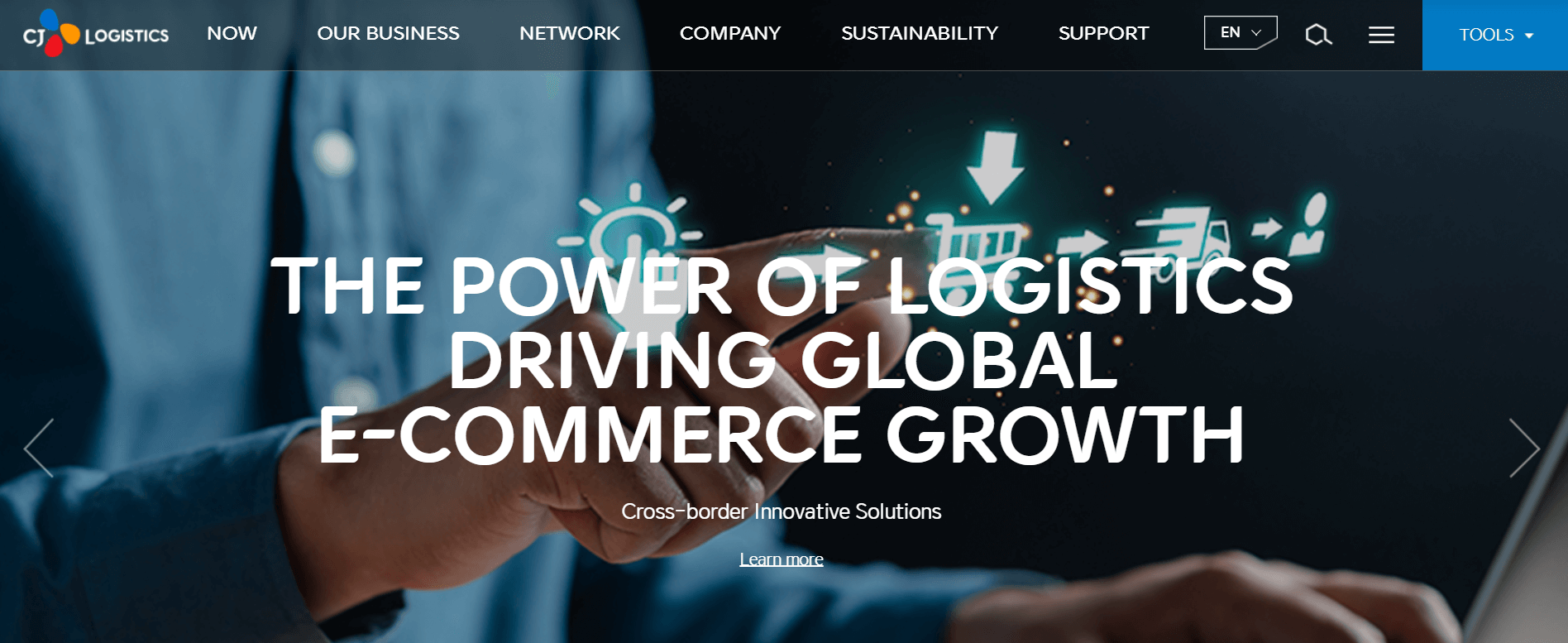
Revenue: $7.2 billion
Headquarters: Des Plaines, Illinois, USA
CEO: Kevin Coleman
Areas Served: North America and Asia
Industries Served: E-commerce, retail, food and beverage, and consumer electronics
CJ Logistics, formerly known as CJ Korea Express, is a South Korean logistics company that has expanded globally. With a strong presence in Asia and growing operations worldwide, CJ Logistics offers end-to-end, supply chain logistics solutions with a customer experience and a focus on technology-driven logistics.
Pros:
Strong presence in Asia-Pacific markets with expanding global operations
Innovative technology solutions including TES (Technology, Engineering, Systems & Solutions)
Expertise in e-commerce logistics and last-mile delivery
Integrated cold chain solutions for fresh and frozen products
Custom-tailored logistics strategies for various industries
Cons:
Less established presence in some Western markets compared to Asian markets
May have limited options for very small businesses or individual shippers
Some services may not be as developed outside of core Asian markets
Who should use it: CJ Logistics is ideal for businesses with significant operations or interests in Asia, particularly those in e-commerce, retail, and consumer goods. It’s also suitable for companies looking for innovative, technology-driven logistics solutions and those requiring specialized services like cold supply chain disruptions and logistics.
6. Kuehne + Nagel Inc.

Revenue: $46.9 billion
Headquarters: Schindellegi, Switzerland
CEO: Stefan Paul
Areas Served: Global, Europe, Asia, and the Americas
Industries Served: Automotive, aerospace, healthcare, retail, and consumer goods
Kuehne + Nagel is a global logistics company founded in 1890 in Bremen, Germany. It has grown to become one of the world’s leading logistics providers, offering a comprehensive range of services including sea freight, air freight, road and rail logistics, and contract logistics.
Pros:
Extensive global network covering over 100 countries
Strong expertise in multiple transportation modes, especially in sea freight
Advanced digital solutions for supply chain management, including KN Login platform
Specialized industry solutions for pharma, aerospace, and high-tech sectors
Commitment to sustainability with the Net Zero Carbon program
Cons:
Can be more expensive for small-scale operations
A complex pricing structure may be challenging for some clients
May have less flexibility for highly customized solutions compared to smaller providers
Who should use it: Kuehne + Nagel is ideal for large multinational corporations with complex, global supply chain needs. It’s particularly well-suited for businesses in industries like pharmaceuticals, aerospace, and high-tech that require specialized handling, compliance expertise, and global reach.
7. GXO Logistics
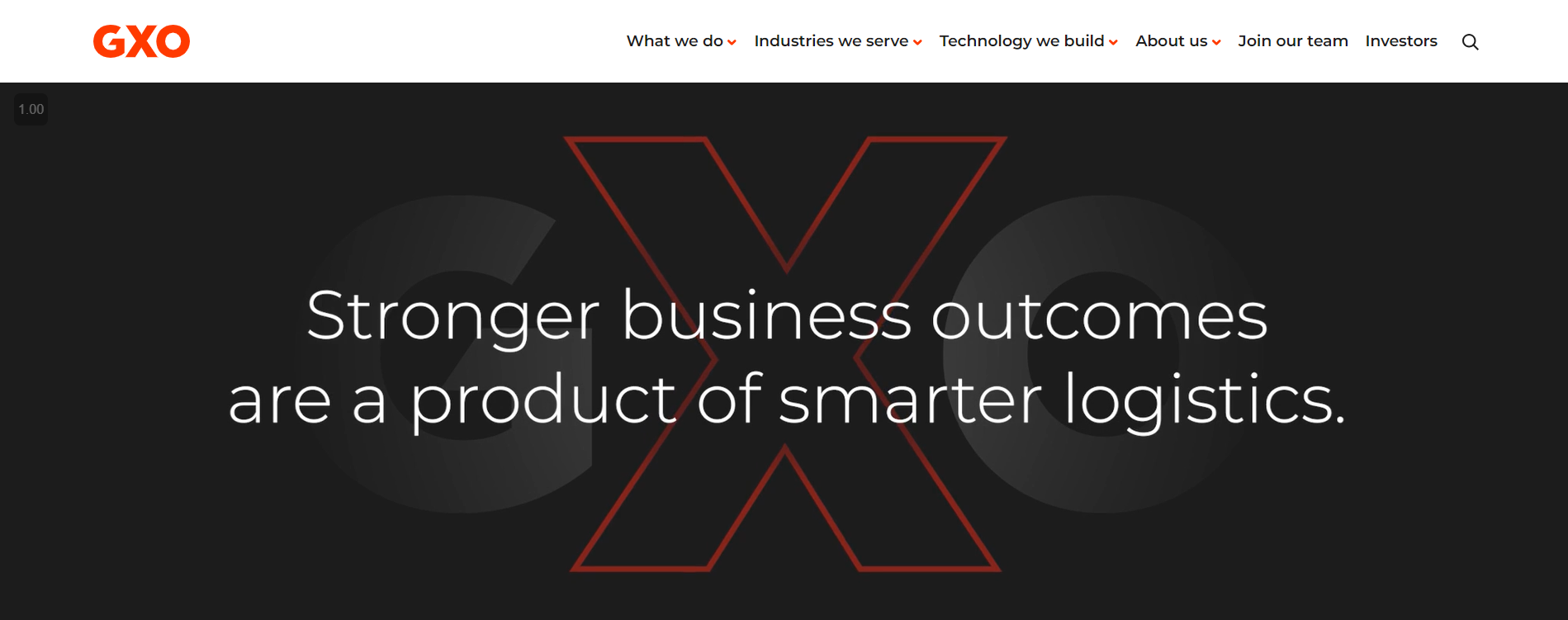
Revenue: $8 billion
Headquarters: Greenwich, Connecticut, USA
CEO: Malcolm Wilson
Areas Served: North America and Europe
Industries Served: E-commerce, technology, retail, and healthcare
GXO Logistics spun off from XPO Logistics in 2021, is a contract logistics company specializing in warehouse management, distribution, and supply chain solutions. GXO focuses on technology and automation to drive efficiency in logistics and supply chain operations.
Pros:
Advanced warehouse automation capabilities, including robotics and AI
Strong e-commerce fulfillment services with omnichannel capabilities
Expertise in reverse logistics and returns management
Focus on technology-driven solutions for improved visibility and efficiency
Experience in managing complex supply chains for large retailers and e-commerce companies
Cons:
Limited transportation services compared to full-service 3PLs
May be less suitable for businesses with simple logistics needs or small volumes
Relatively new brand identity (though backed by extensive experience from XPO)
Who should use it: GXO Logistics is best for medium to large businesses looking for advanced warehouse management and e-commerce fulfillment solutions. It’s particularly suitable for companies in retail, e-commerce, and consumer technology sectors that require high-volume order processing, advanced automation, and reverse logistics capabilities.
8. DB Schenker Logistics
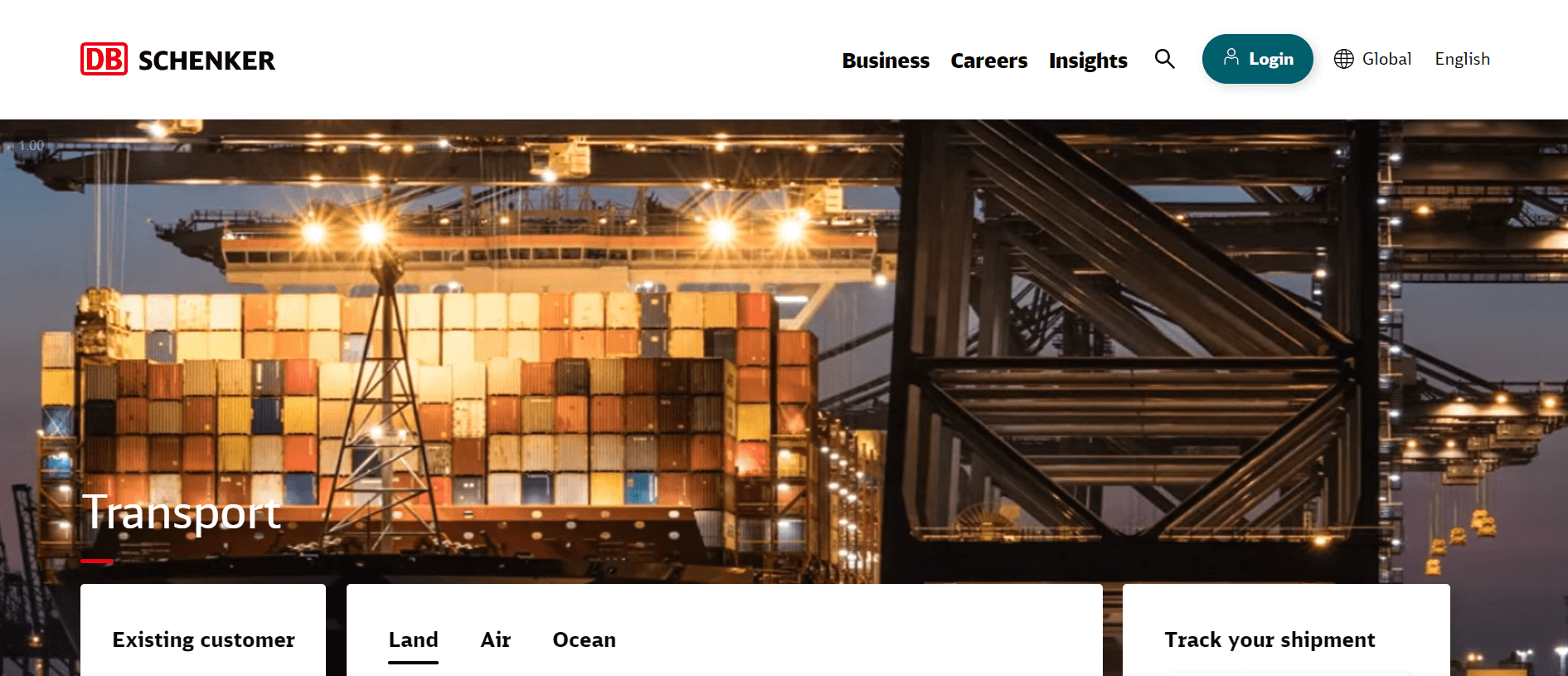
Revenue: $45.6 billion
Headquarters: Essen, Germany
CEO: Jochen Thewes
Areas Served: Global, Europe, Asia, and North America
Industries Served: Automotive, aerospace, consumer goods, and healthcare
DB Schenker, a division of the German rail operator Deutsche Bahn AG, is a global logistics provider offering a wide range of services including land transport, air and ocean freight, and contract logistics. The company has a strong presence in Europe and growing global operations.
Pros:
Extensive European network with strong cross-border capabilities
Integrated logistics solutions combining multiple transport modes
Strong rail freight capabilities, leveraging Deutsche Bahn’s network
Advanced digital platforms for shipment booking and tracking
Specialized solutions for industries like automotive, electronics, and consumer goods
Cons:
May have less coverage in some non-European markets compared to its European presence
Can be more expensive for small-scale operations
Some services may be less developed outside of core European markets
Who should use it: DB Schenker is ideal for businesses with significant European operations or those requiring strong rail freight solutions. It’s well-suited for companies in the automotive, industrial, consumer goods, and technology sectors, especially those with complex cross-border logistics needs in Europe.
9. Nippon Express
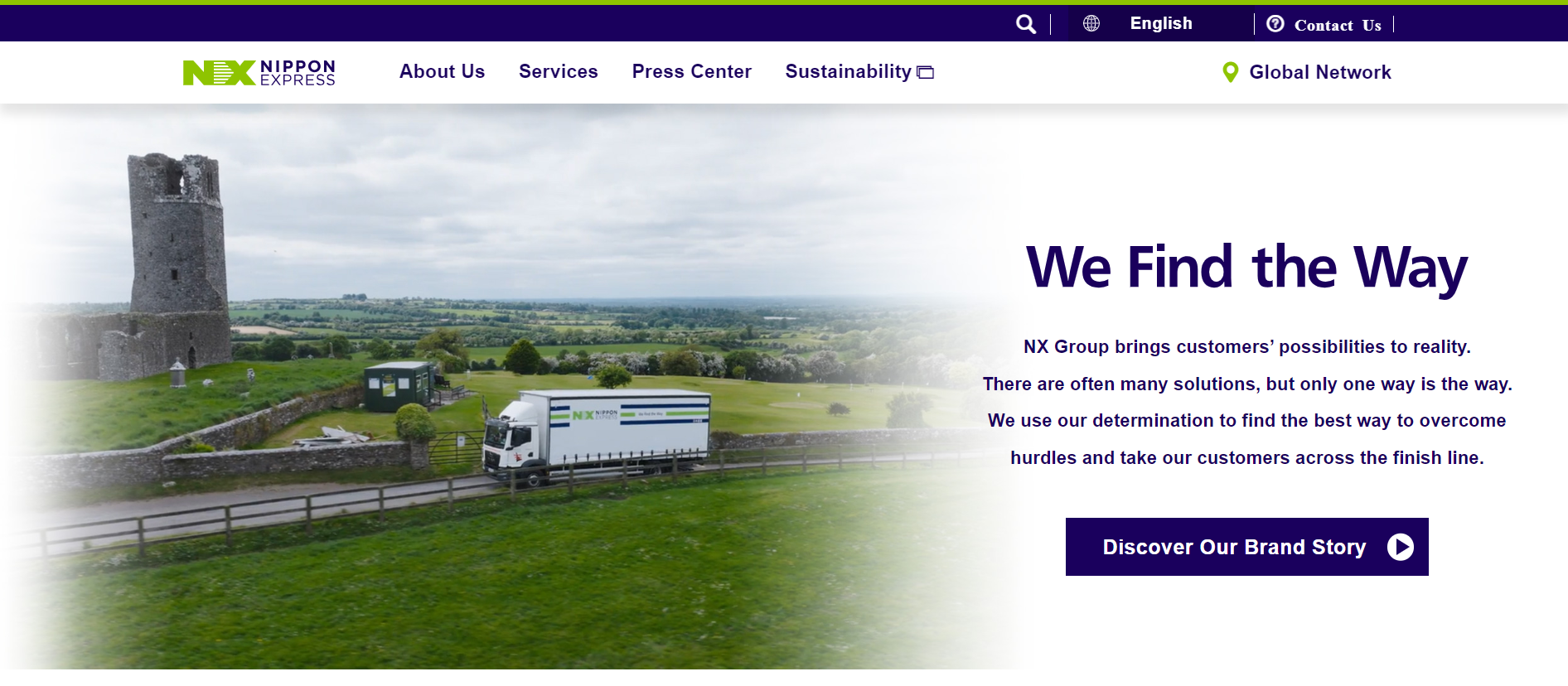
Revenue: $20 billion
Headquarters: Tokyo, Japan
CEO: Toshiro Yamamoto
Areas Served: Global, Asia, and North America
Industries Served: Automotive, electronics, pharmaceuticals, and retail
Nippon Express, founded in 1937, is a global logistics company with a strong presence in Asia, particularly Japan. It offers a wide range of transportation services including air and ocean freight, road transport, warehousing, and specialized logistics solutions.
Pros:
Extensive network in Asia, with unparalleled coverage in Japan
Specialized industry solutions for sectors like pharmaceuticals and fine arts
Strong capabilities in project logistics for oversized and heavy cargo
Integrated IT systems for enhanced visibility and control
Expertise in handling complex customs procedures, especially in Asian markets
Cons:
May have less coverage in some Western markets compared to Asian markets
Services and pricing may be less competitive outside of core Asian markets
Some specialized services may not be available globally
Who should use it: Nippon Express is best for businesses with significant operations or interests in Asia, particularly Japan. It’s well-suited for companies in automotive, electronics, and heavy industry sectors, especially those requiring specialized project logistics or looking to expand their presence in Asian markets.
10. Metrobi
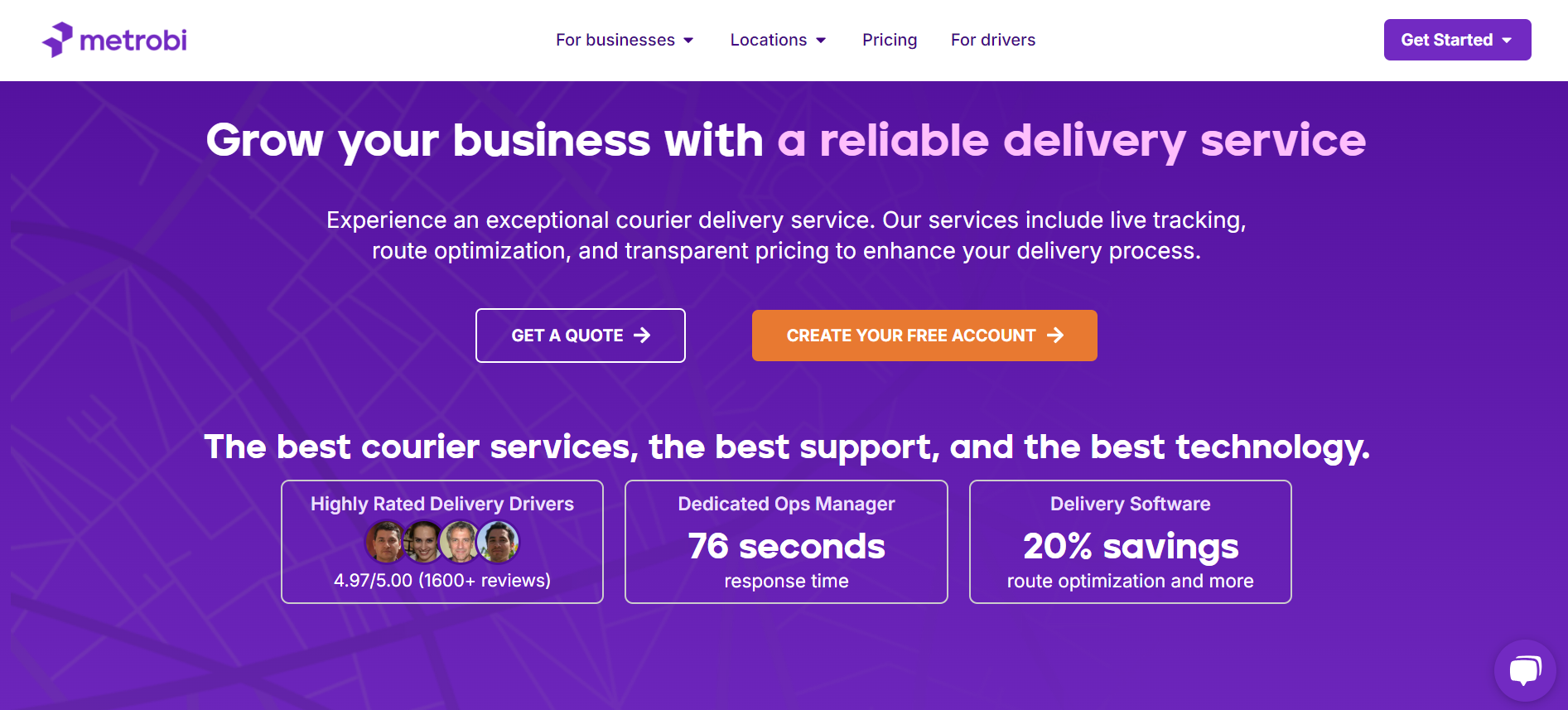
Metrobi is an innovative and dynamic player in the 3PL space, revolutionizing logistics with cutting-edge technology and a focus on efficient, sustainable urban deliveries. As a tech-forward company, Metrobi offers state-of-the-art solutions to hunt transport services that cater to the evolving needs of modern businesses, especially in the e-commerce sector.
Pros:
Advanced AI-powered routing and optimization algorithms for unparalleled efficiency
Real-time tracking and transparent communication throughout the delivery process
Scalable solutions that grow with your business, from startups to enterprise-level operations
Eco-friendly delivery options, including electric vehicles and bike couriers for last-mile deliveries
Customizable API integration for seamless connection with various e-commerce platforms
Data-driven insights to help businesses make informed decisions and improve operations
Exceptional customer service with a dedicated support team
Competitive pricing model designed to offer value for businesses of all sizes
Cons:
Primary focus on urban and suburban areas, which may limit options for rural deliveries
As a newer company, still expanding its network to match the global reach of larger, established 3PLs
May not offer the full range of international shipping services provided by some global logistics giants
Who should use it: Metrobi is the ideal choice for forward-thinking businesses of all sizes that prioritize efficiency, sustainability, and customer satisfaction in their logistics operations. Specifically:
E-commerce Powerhouses: Whether you’re a fast-growing startup or an established online retailer, Metrobi’s cutting-edge technology and scalable solutions can handle your volume while providing the speed and reliability your customers demand. Our AI-powered routing ensures that your products reach customers faster than ever, giving you a competitive edge in the market.
Brick-and-Mortar Retailers Embracing Omnichannel: If you’re looking to compete with e-commerce giants by offering same-day or next-day delivery, Metrobi’s agile last-mile solutions can transform your local stores into mini-fulfillment centers, dramatically improving your delivery capabilities.
Sustainable Brands: For companies committed to reducing their carbon footprint, Metrobi’s eco-friendly delivery options, including electric vehicles and bike couriers, align perfectly with your values while impressing environmentally conscious customers.
Tech-Savvy SMEs: If you’re a small or medium-sized enterprise looking to punch above your weight, Metrobi’s advanced technology stack – from real-time tracking to seamless API integrations – can give you the capabilities of a much larger company without the overhead.
High-Growth Startups: Our scalable solutions grow with you, making Metrobi the perfect partner for startups experiencing rapid expansion. We can quickly adapt to your changing needs without disrupting your operations.
Data-Driven Decision Makers: If you rely on analytics to steer your business, you’ll love Metrobi’s comprehensive data insights. Our platform doesn’t just move your goods; it provides valuable information to optimize your entire supply chain.
Urban-Focused Businesses: For companies concentrating on city markets, Metrobi’s expertise in navigating complex urban landscapes ensures your deliveries are always on time, even in the most congested areas.
Customer-Centric Organizations: If exceptional customer service is your hallmark, Metrobi’s transparent communication and real-time tracking will delight your customers, enhancing their experience and boosting loyalty.
Seasonal Businesses: Our flexible capacity can easily accommodate your peak seasons without the need for year-round commitments, making us ideal for businesses with fluctuating demand.
Time-Sensitive Industries: For businesses in fields like fresh food delivery, medical supplies, or time-critical spare parts, Metrobi’s speed and reliability ensure your sensitive items reach their destination on time, every time.
By choosing Metrobi, you’re not just selecting a top third-party logistics service provider; you’re partnering with a forward-thinking technology company that’s reshaping the future of urban logistics. Our innovative solutions, commitment to sustainability, and customer-first approach make us the go-to choice for businesses looking to thrive in the modern, fast-paced world of commerce. With Metrobi, you’re always one step ahead in the logistics game.
Choosing the Right 3PL Partner for Your Business
In 2024, the top 10 third-party logistics companies offer a wide range of services and capabilities to help businesses optimize their supply chains. From DHL Supply Chain’s global presence lead logistics providers to XPO Logistics’ investment in technology, each 3PL has unique strengths and specializations.
When selecting a 3PL partner, consider factors such as industry expertise, geographic coverage, and technology capabilities. Evaluate how well the 3PL company aligns with your business goals and can support your growth plans.
As e-commerce continues to expand and sustainability becomes a priority, 3PLs are adapting additional services to meet these evolving needs. They offer specialized services like same-day delivery and help clients reduce their environmental impact through green logistics initiatives.
By partnering with the right 3PL, you can leverage their expertise and resources to improve your supply chain performance and drive business growth. Take the time to assess fulfillment costs, and your needs and evaluate potential partners to find the best fit for the fulfillment company and your organization.
How will you leverage the capabilities of a 3PL logistics partner to enhance your supply chain strategy in 2024?

